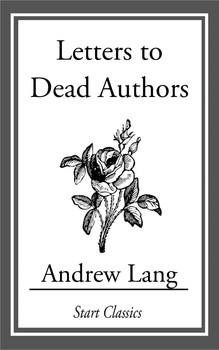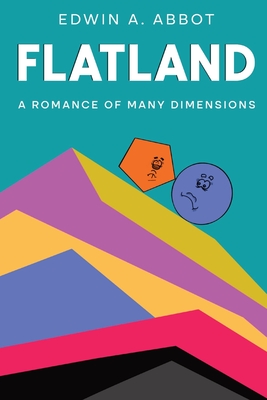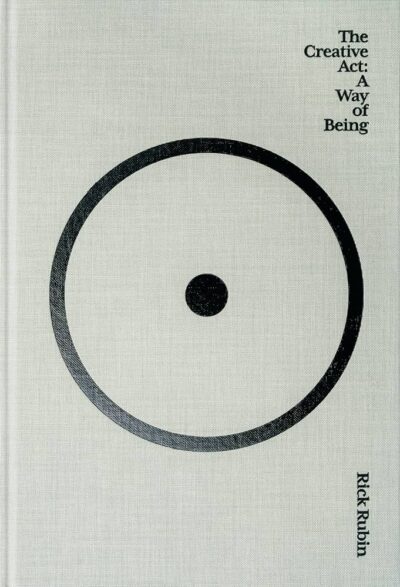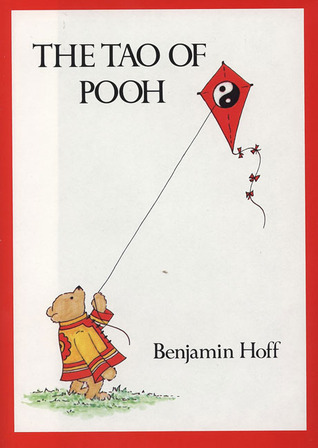182 Results with the "Philosophical" genre
Adventure Fiction (1164)
Biography (435)
Business & Finance (1)
Children's Literature (124)
Comics (6)
Culture (51)
Drama (123)
Dystopian (29)
Fable (86)
Fantasy (1132)
Fantasy (203)
Fiction (1010)
Finance (1)
Gothic Fiction (12)
Historical Fiction (615)
History (122)
Horror (56)
Lifestyle (36)
Literary (404)
Literary Fiction (207)
Memoir (113)
Mystery (422)
Non-fiction (87)
Novel (549)
Paranormal Fiction (96)
Philosophy (45)
Poetry (249)
Political Fiction (14)
Politics (42)
Practical (32)
Psychological (4)
Psychological Thriller (108)
Relationship (6)
Romance Novel (716)
Romantic Melodrama (14)
Satire (91)
Science (46)
Science Fiction (345)
Self-help (68)
Society (65)
Society (2)
Spiritual Growth (1)
story (2)
Thriller (704)
True Crime (56)
view (11)
Women's Fiction (2)
Young Adult (233)
-
Chapter
LETTER–To Master Isaak Walton
 Letter to Master Isaak Walton opens with a warm tribute to the legacy of quiet joy that Walton bestowed through his writings, particularly The Compleat Angler. The author remembers a gentler time, when streams flowed clear and freely through green countryside just outside London. These waters once offered solace to weary minds and provided an equal pleasure to the seasoned sportsman and curious novice alike. Now, with cities creeping outward and smoke blackening the skies, such calm spaces grow fewer. The…
Letter to Master Isaak Walton opens with a warm tribute to the legacy of quiet joy that Walton bestowed through his writings, particularly The Compleat Angler. The author remembers a gentler time, when streams flowed clear and freely through green countryside just outside London. These waters once offered solace to weary minds and provided an equal pleasure to the seasoned sportsman and curious novice alike. Now, with cities creeping outward and smoke blackening the skies, such calm spaces grow fewer. The…-
82.9 K • Ongoing
-
-
 Chapter 9 - "Climbers" in England draws attention to a curious spectacle—the tireless efforts of certain Americans to enter the ranks of English high society. The fascination is mutual, yet often tinged with confusion and condescension. While Americans arrive with enthusiasm, expecting glamour and influence, they are met with cold scrutiny and a subtle caste system rooted more in tradition than merit. The so-called “Little Englander” mindset, with its quiet pride and national rigidity, resists…
Chapter 9 - "Climbers" in England draws attention to a curious spectacle—the tireless efforts of certain Americans to enter the ranks of English high society. The fascination is mutual, yet often tinged with confusion and condescension. While Americans arrive with enthusiasm, expecting glamour and influence, they are met with cold scrutiny and a subtle caste system rooted more in tradition than merit. The so-called “Little Englander” mindset, with its quiet pride and national rigidity, resists…-
151.7 K • Ongoing
-
-
 Section 8 begins with a clear sense of monotony that defines everyday life in Flatland. While societal issues such as conflict and rebellion exist, they fail to provide the kind of visual or emotional variation that brings richness to life. The world is composed entirely of straight lines, where perception is limited to variations in brightness and shade. This lack of depth or curvature deprives inhabitants of artistic pleasure. There are no paintings, no landscapes, no expressions of individuality through…
Section 8 begins with a clear sense of monotony that defines everyday life in Flatland. While societal issues such as conflict and rebellion exist, they fail to provide the kind of visual or emotional variation that brings richness to life. The world is composed entirely of straight lines, where perception is limited to variations in brightness and shade. This lack of depth or curvature deprives inhabitants of artistic pleasure. There are no paintings, no landscapes, no expressions of individuality through…-
92.9 K • Ongoing
-
-
Chapter
Distraction
 Distraction, when used strategically, plays an essential role in the creative process, providing a necessary balance between intense focus and subconscious exploration. While many believe that creativity requires deep concentration at all times, the reality is that stepping away from a project and engaging in seemingly unrelated activities can unlock fresh ideas and novel insights. This concept is rooted in cognitive science, where research has shown that allowing the mind to wander—especially through…
Distraction, when used strategically, plays an essential role in the creative process, providing a necessary balance between intense focus and subconscious exploration. While many believe that creativity requires deep concentration at all times, the reality is that stepping away from a project and engaging in seemingly unrelated activities can unlock fresh ideas and novel insights. This concept is rooted in cognitive science, where research has shown that allowing the mind to wander—especially through…-
341.4 K • Ongoing
-
-
Chapter
A Whisper Out of Time
 A Whisper Out of Time reflects on the unpredictable and often subtle nature of inspiration, reminding artists that the initial scale of an idea does not determine its final impact. Many creators fall into the trap of believing that only grand, earth-shattering concepts are worth pursuing, dismissing the quiet, unassuming sparks that appear in daily life. This essay challenges that notion, suggesting that the most profound works often begin as fleeting thoughts, seemingly insignificant whispers that only…
A Whisper Out of Time reflects on the unpredictable and often subtle nature of inspiration, reminding artists that the initial scale of an idea does not determine its final impact. Many creators fall into the trap of believing that only grand, earth-shattering concepts are worth pursuing, dismissing the quiet, unassuming sparks that appear in daily life. This essay challenges that notion, suggesting that the most profound works often begin as fleeting thoughts, seemingly insignificant whispers that only…-
341.4 K • Ongoing
-
-
Chapter
Chapter 12: Pooh?
 Pooh? In this chapter, the narrator and Pooh have an engaging and lighthearted conversation about Taoist philosophy, focusing specifically on the concept of P'u, or the Uncarved Block. The narrator explains that many people are unfamiliar with Taoism, leading to the idea of embarking on a whimsical journey to China to understand the philosophy better. In a quaint shop filled with allegorical scrolls, they come across a painting titled "The Vinegar Tasters," which becomes a central point for the…
Pooh? In this chapter, the narrator and Pooh have an engaging and lighthearted conversation about Taoist philosophy, focusing specifically on the concept of P'u, or the Uncarved Block. The narrator explains that many people are unfamiliar with Taoism, leading to the idea of embarking on a whimsical journey to China to understand the philosophy better. In a quaint shop filled with allegorical scrolls, they come across a painting titled "The Vinegar Tasters," which becomes a central point for the…-
68.0 K • Ongoing
-
-
Chapter
LETTER–To Q. Horatius Flaccus
 Letter to Q. Horatius Flaccus begins with a quiet, searching tone, reflecting on whether the poet, in whatever place death may have led him, still enjoys the charm of country walks and city wit. The question is gentle, almost rhetorical, asking not for doctrine but for imagination. What becomes of the mind so deeply tuned to beauty, friendship, and moderation? The letter doesn’t aim to solve the mystery of the afterlife—it accepts the uncertainty. Unlike Virgil’s bold journeys into shadowy realms,…
Letter to Q. Horatius Flaccus begins with a quiet, searching tone, reflecting on whether the poet, in whatever place death may have led him, still enjoys the charm of country walks and city wit. The question is gentle, almost rhetorical, asking not for doctrine but for imagination. What becomes of the mind so deeply tuned to beauty, friendship, and moderation? The letter doesn’t aim to solve the mystery of the afterlife—it accepts the uncertainty. Unlike Virgil’s bold journeys into shadowy realms,…-
82.9 K • Ongoing
-
-
Chapter
Chapter 20 — As the Twig is Bent
 Chapter 20 - As the Twig is Bent opens with a story about a man in a rural French village who tried to improve the lives of local boys through art and literature. Though initially met with disinterest due to the boys' impoverished lives, the man's efforts gradually stirred a deep appreciation for beauty in his students. These lessons—centered around art, architecture, and cultural treasures—planted lasting seeds of curiosity and dignity, nurturing a deeper view of life beyond material hardship. His…
Chapter 20 - As the Twig is Bent opens with a story about a man in a rural French village who tried to improve the lives of local boys through art and literature. Though initially met with disinterest due to the boys' impoverished lives, the man's efforts gradually stirred a deep appreciation for beauty in his students. These lessons—centered around art, architecture, and cultural treasures—planted lasting seeds of curiosity and dignity, nurturing a deeper view of life beyond material hardship. His…-
151.7 K • Ongoing
-
-
 Section 20 – Flatland opens with the narrator returning home, carrying the weight of experiences that he knows cannot be shared openly. Faced with his wife’s concern and her limited understanding of dimensions, he crafts a simple story involving a trapdoor to explain his disoriented state. Her unquestioning acceptance comforts him only slightly, as he begins to realize how lonely it feels to possess knowledge that others cannot grasp. The silence of night offers him refuge, and he retreats inward,…
Section 20 – Flatland opens with the narrator returning home, carrying the weight of experiences that he knows cannot be shared openly. Faced with his wife’s concern and her limited understanding of dimensions, he crafts a simple story involving a trapdoor to explain his disoriented state. Her unquestioning acceptance comforts him only slightly, as he begins to realize how lonely it feels to possess knowledge that others cannot grasp. The silence of night offers him refuge, and he retreats inward,…-
92.9 K • Ongoing
-
-
Chapter
Experimentation
 In the chapter titled "Experimentation," the author delves into one of the most dynamic stages of the creative process—the phase of exploration and playful engagement with early ideas. Here, the focus is not on crafting a perfect, finished product, but rather on the freedom to discover and explore the potential of concepts, often referred to as seeds. These seeds may be the initial spark of an idea, whether a story, a melody, or a visual concept, which, when given the space to evolve, may transform into…
In the chapter titled "Experimentation," the author delves into one of the most dynamic stages of the creative process—the phase of exploration and playful engagement with early ideas. Here, the focus is not on crafting a perfect, finished product, but rather on the freedom to discover and explore the potential of concepts, often referred to as seeds. These seeds may be the initial spark of an idea, whether a story, a melody, or a visual concept, which, when given the space to evolve, may transform into…-
341.4 K • Ongoing
-
- 1 2 … 18 Next
